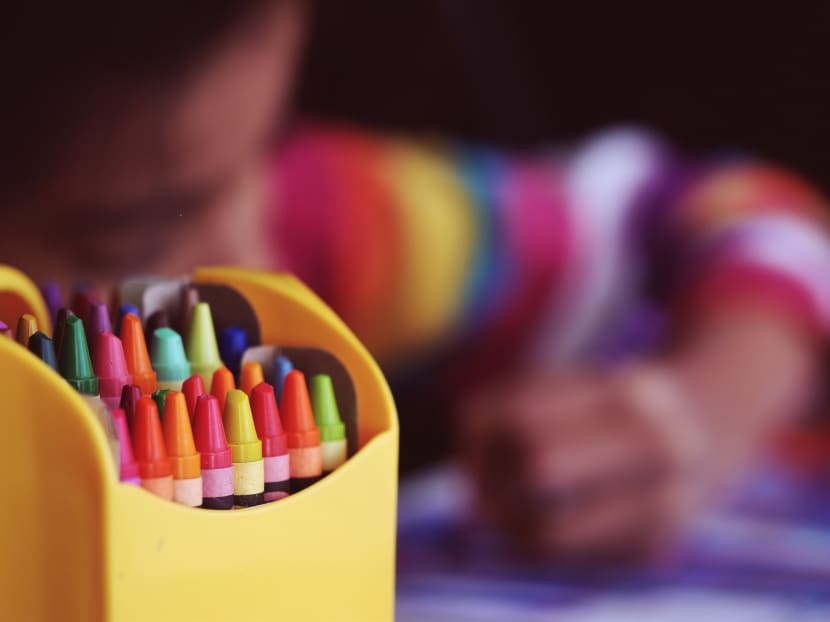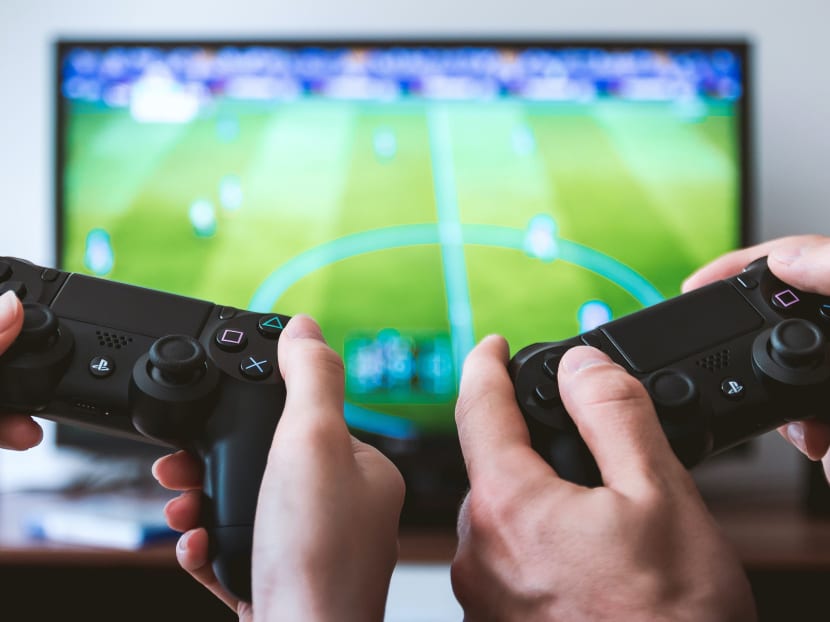Use play to help your kids learn — without leaving home
Amid the Covid-19 pandemic, much of the focus for schoolgoing children has been on home-based learning (HBL) and the bringing forward of the June school holidays to May. As educators and parents of young children ourselves, we would like to turn the conversation to play as a natural and necessary form of learning, especially given the amount of time parents will have at home with their children in the coming weeks.

Parents can encourage children’s free play at home by giving them the encouragement, space and materials to indulge in free play, say the authors.
Amid the Covid-19 pandemic, much of the focus for schoolgoing children in Singapore has been on home-based learning (HBL) and the bringing forward of the June school holidays to May.
As educators and parents of young children ourselves, we would like to turn the conversation to play as a natural and necessary form of learning, especially given the amount of time parents will have at home with their children in the coming weeks.
Play is integral to childhood. The instinct and love for play is shared amongst all children. Play is not just a frivolous whiling away of time. Children learn from play in more ways than we recognise.
Play is a literacy activity where children develop creativity, imagination, and empathy. It can also build their confidence and give them a sense of competence. Above all, play is pleasurable and nourishes the soul.
The late Professor of Semiotics and Education at the University of London, Gunther Rolf Kress, observed that what we make available to the child is a central factor in what the child will and can do.
Play is child’s work and the toys are tools with which the child makes meaning and learn.
Here, we would like to offer some ideas on three kinds of play experiences.
It may be difficult to put aside time to play given the challenges of working from home, but we hope to provide an argument for setting time aside for daily play for and with your children.
FREE PLAY
Too often during the school day, children do not have enough time to play, whether indoors or outdoors. During the HBL season or the school holidays, children will have more leisure time but are not able to leave home or go out for activities due to the circuit breaker.
Parents can encourage children to play freely at home by giving them the encouragement, space and materials.
Set aside a small area for play and rotate toys such as board games and blocks on a regular basis. Materials such as cardboard boxes, twine and styrofoam can be used for play too. Just making resources for play are visible and accessible encourages free play.
Free play can be digital too. One of the authors’ older children is an avid creator of amateur YouTube videos. The videos are often inspired by popular fads and depict fictitious events. The child’s novice digital authoring practice offers him an outlet for his emotions and the creative expression of his ideas.
Younger children may create a make-belief world and often indulge in self-talk in their pretend play. These can have a positive effect on their creativity and cognitive growth.
Older children too can develop a sense of autonomy, confidence and competence through their free play as well.
Busy parents would be happy to note that their involvement in free play is typically low, apart from being occasionally roped in as a guest to your child’s "restaurant" or as a cheerleader to celebrate their creations.
GUIDED PLAY
Guided play is designed with specific learning goals that the parents have in mind. Here, play is an enjoyable way of learning certain knowledge and skills.
Parents take on the role of a coach and guide as children engage in learning through play. Depending on the age of the child, guided play may be independently executed with minimal parental guidance.
Some examples of guided play include getting your child to embark on an inquiry-based project exploring a topic of interest, conduct a do-it-yourself science experiment, learn a new skill, or create a scrapbook of past experiences.
Technology can support guided play. For example, children could learn basic coding principles through digital games or explore how to make a video with stop-motion animation.
There are many resources on the internet that offer ideas on guided play.
In one of our research projects, we developed a set of learning resources, with suggested activities, to support parents in using educational apps to guide their young child’s learning of language, socio-emotions and values.

Co-playing with your children in a digital game can be a humbling experience for the parents, say the authors. Photo: Unsplash
C0-PLAY
Parents can join their children and play together. This could include building a Lego set together, puttingon a silly family musical performance for the evening, or just playing a card game like UNO, or available board games at home together.
Joining our children in playing multi-player online games is another option. Through this, we enter into, and participate as peers in their world.
Apart from showing that we care about their interests, and learning new skills ourselves, we also develop a deeper understanding of the cyber-safety issues they may experience.
Co-playing with your children in a digital game can be a humbling experience for the parents and wonderfully refreshing for the children when they get to be experts for a change.
In co-play, not only do children learn from watching their parents’ behaviour, parents also learn more about their growing children — their personalities emerging from the ways they behave in play.
Co-play allows parents to create happy memories with their children by spending time with them, without having to leave the house.
In this circuit breaker period where most Singaporeans have to stay at home, co-play can also help children manage their anxieties and support their emotional well-being.
We hope to remind each other of the value of play — as a respite during these most extraordinary circumstances.
As Antoine de Saint-Exupéry, the well-loved writer of the children's book, The Little Prince, reflects: “All grown-ups were once children... but only few of them remember it.”
In a time of crisis, where emotions are fraught and stress can run high — let us not forget how to play.
ABOUT THE AUTHORS:
Victor Lim Fei is an Assistant Professor and Loh Chin Ee is an Associate Professor at the National Institute of Education, Nanyang Technological University.









